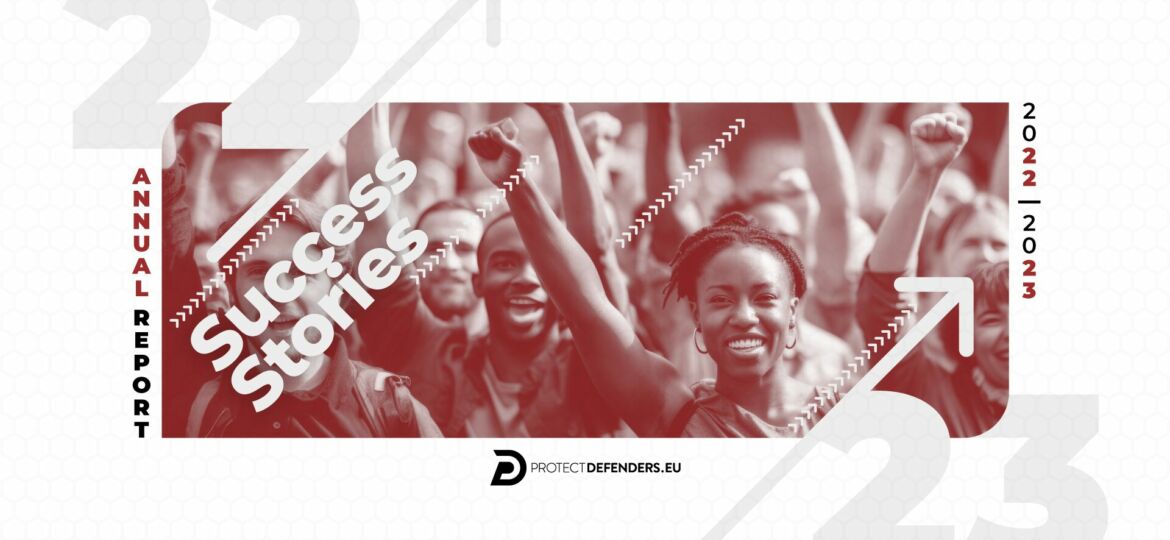
This article is part of a series of articles published in conjunction with our annual report. You can read the full report “Reaching Further” here.
—–
Luis Francisco Gonzalez Cabrera has been a peasant leader for more than 22 years and is a member of the “Asociación Campesina del Valle del Río Cimitarra Red Agroecologica Nacional- ACVC RAN”, an organisation that defends and promotes peasant rights and environmental protection in the Magdalena Medio in Colombia. He has been forcibly displaced and threatened on several occasions by armed groups due to his work as a human rights defender demanding respect for human rights and the rights of peasants in the context of disputes over territorial control by armed groups. At the ACVC, Luis Francisco is coordinator of the southern section of Bolívar’s department, and works on interinstitutional relations with other NGOs and state institutions on issues related to rural development and protection of social leaders in northeastern Colombia.
According to Global Witness, Colombia is one of the most dangerous countries for human rights defenders. According to Somos Defensores, during 2022, Colombian human rights defenders and social leaders were victims of 840 aggressions, a high number that shows the risks faced by those who defend human rights in the country. In this period, 197 human rights defenders were murdered, which means an increase of 42% compared to the year 2021. In this context, due to death threats by armed groups against the Asociación Campesina del Valle del Río Cimitarra Red Agroecológica Nacional- ACVC RAN, Luis Francisco, a member of this organisation, decided to urgently relocate to another city in order to reduce the risk to himself and his family.
Within the framework of ProtectDefenders.eu, and through the single entry-point, FIDH received a request to cover the living costs for 3 months of his urgent relocation through an emergency grant. FIDH was able to deliver this grant. During this time, the defender protected his life and that of his family and was provided with the supplies and tools to remain temporarily relocated with the necessary guarantees of subsistence such as housing, food, transport to be able to continue with some of his activities in the ACVC organisation and to carry out the tasks assigned to him as a human rights defender. This support has ensured his emotional stability as he was guaranteed to be able to live in a safer environment, with dignified conditions and with the whole family united. Furthermore, it is also important to mention that the ACVC was not weakened since the departure of the defender from the territory did not mean that it had to stop working; on the contrary, this action allowed him to continue developing activities that even strengthened its organisation since he was able to participate in events that gave him more knowledge for his preparation and skills.
In the framework of ProtectDefenders.eu, the FIDH grant, thanks to its holistic approach, enabled several significant changes in the situation of the defender. On the one hand, the urgent relocation made it possible to reduce the danger situation of the defender and his family, protecting their right to life. On the other hand, during his emergency relocation, the defender was able to continue working on advocacy actions in favor of his community and his association. He participated in local, regional and national advocacy activities related to peasant rights and right to peace. At the same time, in the context of his relocation, the defender had the opportunity to enroll at the university in a course on “Pedagogy, Rurality and Peace”, a course that is vital for the defender because it will strengthen his work skills, useful to continue doing advocacy in his territory and with his association.


